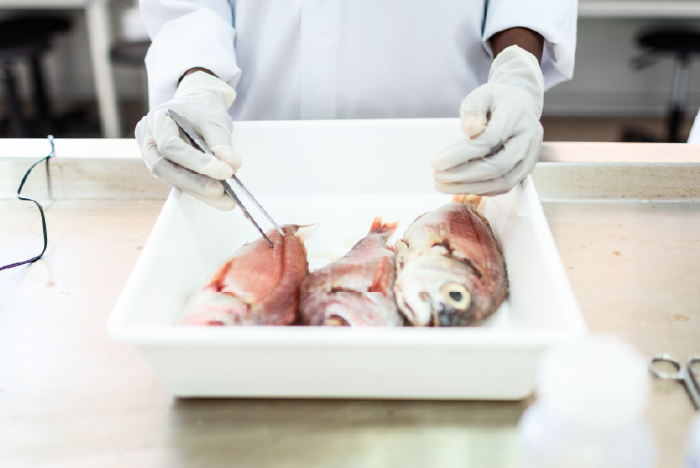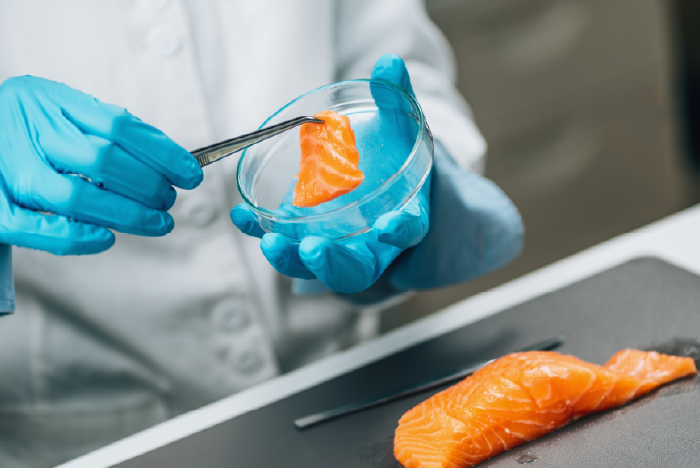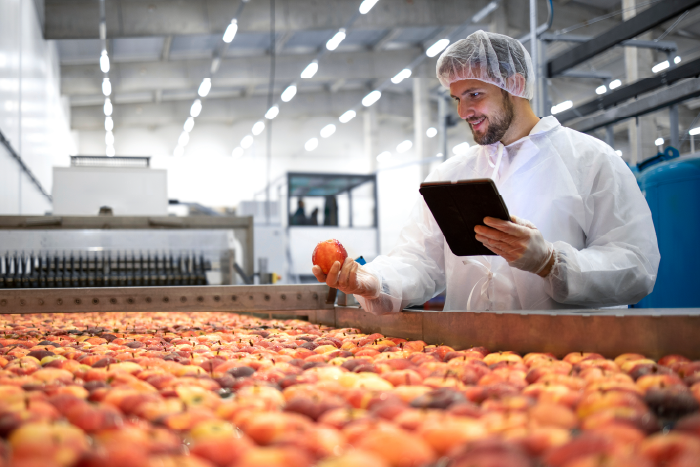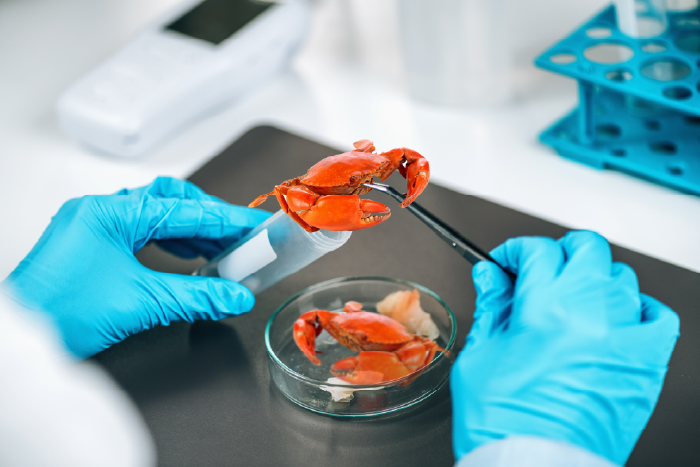
Mercury Testing in Seafood Dubai: Ensure Safety, Compliance & Trust with RTLab
Seafood is a beloved part of many Dubai residents’ diets – it’s tasty, nutritious, and often a local favorite. But hidden beneath the surface is a serious concern: mercury contamination in seafood. This can pose health risks, especially for pregnant women and young children.
In this guide, we’ll explain the importance of mercury testing in seafood in Dubai, the rules set by Dubai Municipality, and how Reliable Testing Laboratory (RTL) helps keep your seafood safe, trusted, and legally compliant.
Why Mercury Testing Matters in Dubai
Mercury is a heavy metal found naturally in the environment – but industrial pollution can raise its levels significantly in fish. Consuming seafood with high mercury content can cause neurological problems, such as poor memory, reduced motor skills, and developmental issues in children.
Because of this, Dubai Municipality has strict guidelines to protect public health. In fact, recent inspections found mercury levels above the safe limit in 7% of seafood samples, resulting in product recalls and fines for non-compliant businesses.
Regular mercury testing in seafood ensures safety for your customers and protects your brand from legal and reputational risks.
UAE and GCC Mercury Limits
To stay compliant, here are the mercury concentration limits you need to know:
|
Authority |
Mercury Limit |
|
Dubai Municipality |
0.5 mg/kg |
|
GCC Standard (GSO 9/2015) |
0.5 mg/kg |
|
EU & FDA (for exporters) |
0.5 – 1.0 mg/kg |
Understanding these limits helps ensure your products pass local and international inspections smoothly.
High-Risk vs Low-Risk Fish in Dubai
Knowing which fish species tend to have higher mercury levels can guide safer choices:
High-Risk Fish (Eat Less Frequently):
- King Mackerel
- Shark
- Tuna (Bigeye, Yellowfin)
- Sailfish
- Marlin
Low-Risk Fish (Safer for Regular Consumption):
- Hamour (Grouper)
- Sardines
- Shrimp
- Mullet
Balancing your seafood diet accordingly reduces health risks significantly.
How Mercury Testing Works ?
Reliable Testing Laboratory (RTL) employs two industry-leading analytical techniques—ICP-MS and AAS—to measure mercury in seafood with unmatched accuracy, precision, and speed. Our scientists select the optimal method for your sample type, required detection limit, and budget, ensuring you get reliable results every time.
- ICP-MS (Inductively Coupled Plasma Mass Spectrometry): Highly precise and detects extremely low mercury levels quickly.
- AAS (Atomic Absorption Spectrometry): Reliable and cost-effective, suited for routine tests.
we choose the best method based on your testing needs.
Seafood Mercury Testing Process At Reliable Testing Laboratory
Getting your seafood tested is simple:
- Sample Pickup: Free chilled collection across Dubai.
- Preparation: Samples carefully processed in our accredited lab.
- Analysis: Detailed mercury testing performed.
- Reporting: Results and compliance certificates issued promptly (standard turnaround in 5 days, express option within 48 hours).
Protect your customers and ensure regulatory compliance today.
Contact Reliable Testing Laboratory Now – Keeping your seafood safe and compliant in Dubai.
Frequently Asked Questions
What kind of samples do you accept?
Fresh or frozen seafood samples (minimum 100g).
Do you provide official compliance certificates?
Yes, Reliable Testing Laboratory provides Dubai Municipality-approved certificates.
Do you test other heavy metals?
Yes, we offer multi-element panels (lead, cadmium, arsenic, mercury) in a single run for comprehensive safety screening.



